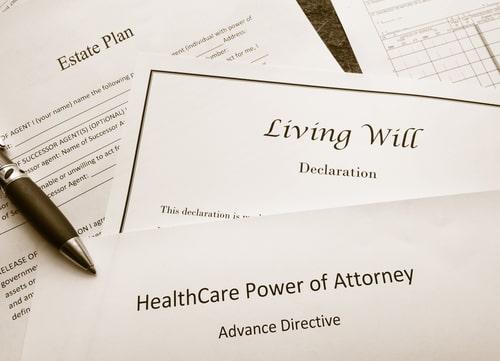Understanding Powers of Attorney for Health Care and Living Wills
 It is understandably difficult for many people to consider their own end-of-life health care decisions. They may convince themselves that they will have plenty of time to think about such things when the time comes. What if you do not have plenty of time, however? What if, for example, you are suddenly diagnosed with a fast-moving illness or terminal injuries? Being prepared is always the better option, and a power of attorney for health care and a living will can help you stay ahead of life’s unpredictability.
It is understandably difficult for many people to consider their own end-of-life health care decisions. They may convince themselves that they will have plenty of time to think about such things when the time comes. What if you do not have plenty of time, however? What if, for example, you are suddenly diagnosed with a fast-moving illness or terminal injuries? Being prepared is always the better option, and a power of attorney for health care and a living will can help you stay ahead of life’s unpredictability.
What is a Power of Attorney for Health Care?
While a living will and power of attorney for health care can be used in conjunction with each other, it is important to understand the basic differences between the two. A power of attorney for health care grants an individual or entity of your choosing-known as an agent-the authority to make medical and health-related decisions on your behalf should you become unable to do so. This typically applies to situations of mental or physical incapacitation. The power of attorney may include specific directions for the agent regarding your wishes, and any health-related concern you have not specifically addressed will be decided at the discretion of your appointed agent.
What Can I Include in a Living Will?
Compared to a power of attorney, a living will is a bit more specific. The Illinois Living Will Act provides the applicable guidelines for such documents, or declarations, as they are statutorily known. A living will is sometimes called an advance medical directive and is used to outline your wishes regarding "death-delaying procedures" in the event you are suffering from a terminal condition. A declaration would only take effect if you were unable to give directions related to your care.
Your living will can be used to permit or prohibit the use of dialysis, blood transfusions, ventilator machines, and intravenous medication or feeding, among other measures, to delay death in a terminal situation. It will not prevent a healthcare facility from providing food or water, nor would it be observed if you are pregnant and delaying death could possibly allow the fetus to "develop to the point of live birth." Other considerations may be left to your personal physician or attending physician. Your power of attorney for health care could also be tasked with making decisions in such situations.
Voluntary Declaration
Under no circumstances can a living will be required by a doctor, hospital, health insurer, or any other organization as a condition of receiving medical services or life insurance benefits. You must make your declaration willingly and without coercion. Anyone who coerces or fraudulently induces a person to create a living will that leads, by compliance with its terms, to the person’s death, may be prosecuted for involuntary manslaughter.
Contact a DuPage County Estate Planning Lawyer
If you would like more information about living wills or powers of attorney, contact an experienced Lombard estate planning attorney. At A. Traub & Associates, we have helped hundreds of clients achieve security and peace of mind for themselves and their families, and we look forward to helping you. Call 630-426-0196 to request an appointment today.












